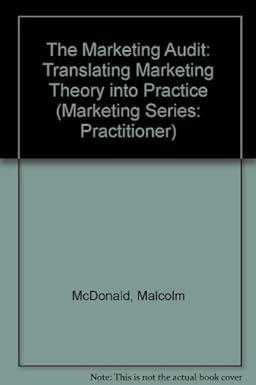Question
An important feature of the financial statements of state and local governments is the two-layer reporting system. In addition to the traditional fund financial statements,
An important feature of the financial statements of state and local governments is the two-layer reporting system. In addition to the traditional fund financial statements, the Governmental Accounting Standard Board (GASB) issued Statement No. 34 to add a new layer of reporting, the government-wide financial statements. The government-wide statements are presented using the full accrual basis of accounting and with the economic resources measurement focus. Combined with the fund level statements, the financial overview of the governmentwide financial statements provides a comprehensive evaluation of the overall financial condition and operating results of a government. City of Sugar Land in Texas is selected as a good example to illustrate the two-layer financial reporting system. Most students in our school are familiar with the city and its services, facilities, and infrastructures. It serves as an interesting case for students in learning its activities and accounting system. The city has a population of about 90,000, and its 2014-2015 budget is $181.59 million. It is a full-service municipality engaging in both governmental activities (i.e., police and fire protection, curbside recycling, parks and recreation, public works, planning / zoning) and business-type activities (i.e. water / wastewater utilities, solid waste collection, a regional airport). But the city does not have fiduciary activities. During the past years, the city has seen continuous economic growth, and has been named one of the top 50 best places to live in the US. The most recent CAFR can be obtained from the citys website. After going over the general structure of the reports, the students are asked to focus on the financial section, including the management discussion and analyses (MD&A), government-wide financial statements and the governmental funds financial statements. Then, a written summary from each student is required to address the following questions.
1) What are the programs/functions reported in the Government-wide Statement of Activities? By how much has the citys Net Position increased from the last fiscal year?
2) Why is fund accounting used in governmental accounting? Which types of governmental funds and enterprise funds does the city have?
3) What are the major revenues for the citys governmental funds? What are the three major revenue sources for the city? How is sales tax collected by the city? What is franchise tax?
4) What is the revenue recognition policy for the citys governmental funds? How is the policy different from revenue recognition in for-profit companies?
5) In which situation will the city issue bond? What sources can the city rely upon to make payments for the premium and interest related to the bond?
6) What is restricted fund? What are the examples of restricted fund in the city?
7) How does the city balance its budget, especially when the projected expenditures exceed the projected revenues?
8) What is an interfund transfer? Why are interfund transfers closely monitored by the government?
9) Why is reconciliation needed between the fund financial statements and governmentwide financial statements? Please give one or two example (s).
Step by Step Solution
There are 3 Steps involved in it
Step: 1

Get Instant Access to Expert-Tailored Solutions
See step-by-step solutions with expert insights and AI powered tools for academic success
Step: 2

Step: 3

Ace Your Homework with AI
Get the answers you need in no time with our AI-driven, step-by-step assistance
Get Started


